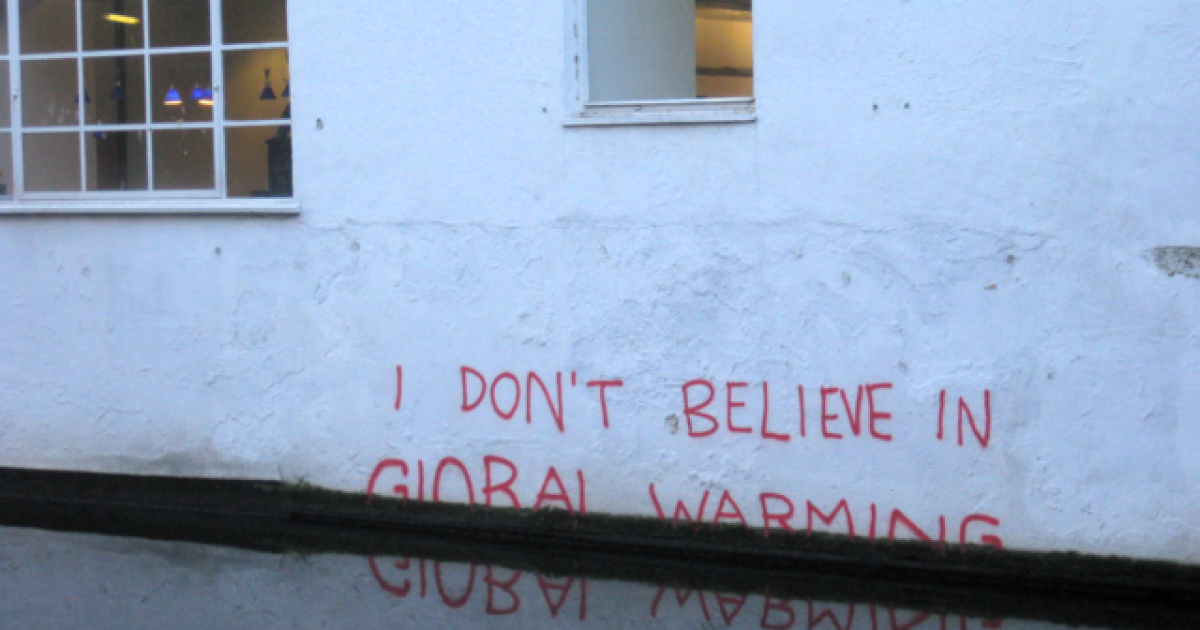Education?
The GWPF was also scrutinised over its publications. Educational charities have a legal obligation to ensure balance across their outputs to allow people to make up their own minds.
It will now change its procedures around publishing reports, with a new system allowing comments, corrections and amendments ahead of publication from experts and other interested parties.
In a statement, the commission said that it expects the GWPF to now make the changes it had proposed. It added: “The Commission can revisit issues raised during the case should renewed regulatory concerns come to light.”
The Good Law Project welcomed the divestment, saying it would “cut off an important route to funnel charitable funding into climate disinformation”.
Earlier this year, the GWPF’s income had fallen to the lowest level since 2016, according to analysis of its latest accounts by DeSmog. These showed an income of £280,000 for the year ending 30 September 2023, a drop of £110,000 from the previous year. Total annual losses increased from £17,000 to over £150,000.
While membership fees fell only slightly from £10,300 to £9,900, the GWPF saw a large fall in donations from £346,000 to £201,000. The GWPF does not declare the names of its donors.
Fossil fuels
The Good Law Project criticised other findings made by the commission. It had complained that the GWPF received money from a foundation holding shares in fossil fuel companies, as well as a Tory peer with investments in BP, Shell and TotalEnergies.
The commission said that it had “received, and accepted, strong assurances from the trustees” that the charity has a policy against accept donations from the energy industry or anyone with a significant interest in an energy company.
The Good Law Project slammed the commission for accepting the GWPF’s claims “at face value” and said that its conclusion “fly in the face of investigations” that had formed the basis of its complaint.
It was also critical of the commission’s failure to impose sanctions on the GWPF. Its executive director, Jo Maugham, said that this hands-off approach raised important questions.
“What’s startling is the Charity Commission’s unfathomable desire to spare the Global Warming Policy Foundation explicit criticism or impose regulatory sanction. Reading between the lines, it is clear that GWPF committed multiple breaches of charity law,” he said.
Maugham vowed to keep “a close eye” on the GWPF to see if its changes in procedure made any difference to its outputs, and also to see if the Charity Commission’s soft-touch engagement was enough to uphold the law.
The Good Law Project was critical of the length of time the regulator had taken to publish its findings, which were released more than 18 months since it made the complaint, and only after the lawyers told the commission its delay was contributing to an unlawful distortion of the public debate around the climate crisis, and that it was preparing to sue.
Changes expected
Tracy Howarth, assistant director for casework at the Charity Commission said: “We have engaged with the Global Warming Policy Foundation on a range of regulatory issues in some detail and over many months.
“During that time, the charity has made changes and improvements both to its charitable activities, and its relationships with third parties. We expect the trustees to now fully implement the proposed changes. On that basis, we are satisfied the concerns raised are now resolved.”
Dr Jerome Booth, chairman of the GWPF, criticised “those who employ moral reasoning with little respect for opposing views” for using “heavy handed means” to “shut down debate”.
He added: “This educational charity was set up to help generate an informed and rational debate on energy and climate policies for the greater public good. We welcome the Commission’s findings and will continue to pursue our charitable objectives.”
This Author
Catherine Early is a freelance environmental journalist and chief reporter for The Ecologist. She tweets at @Cat_Early76.
